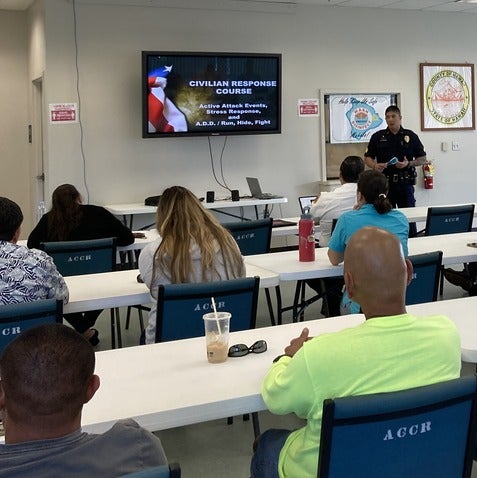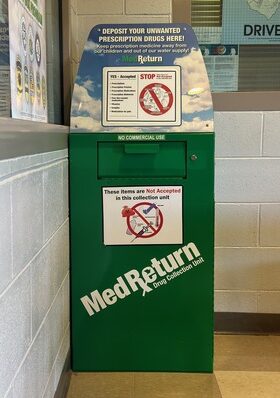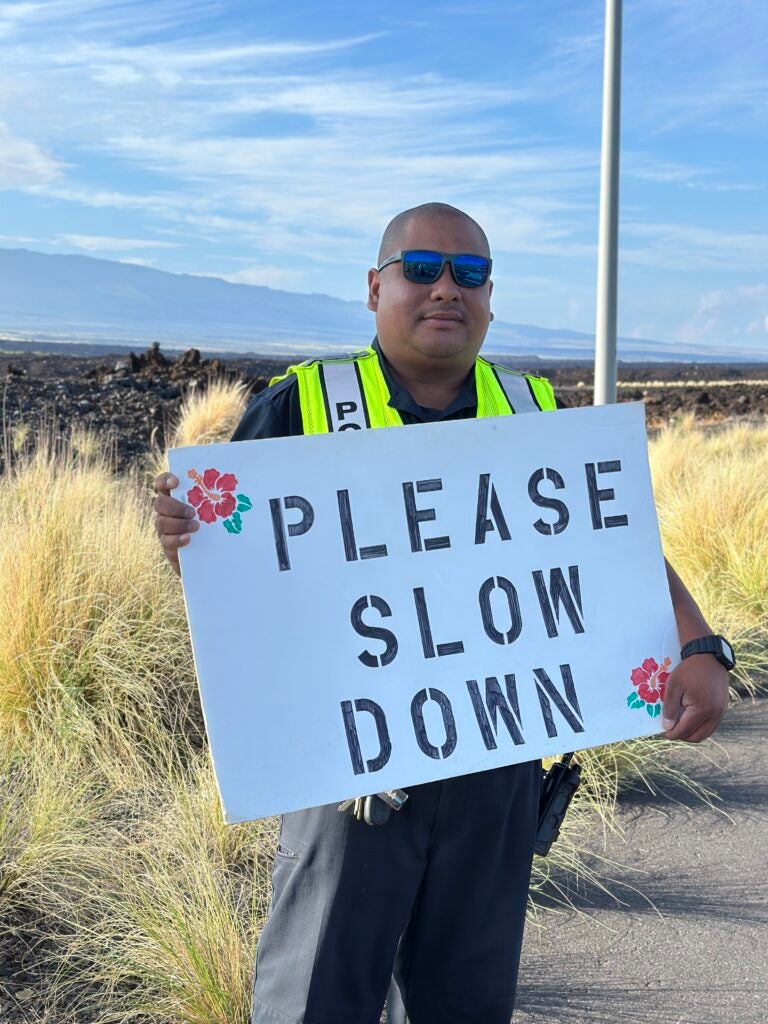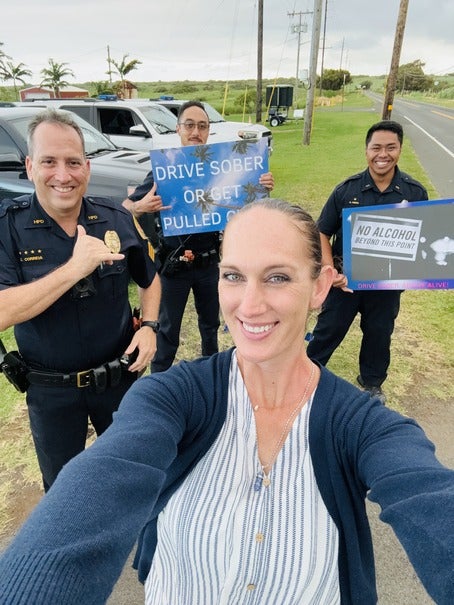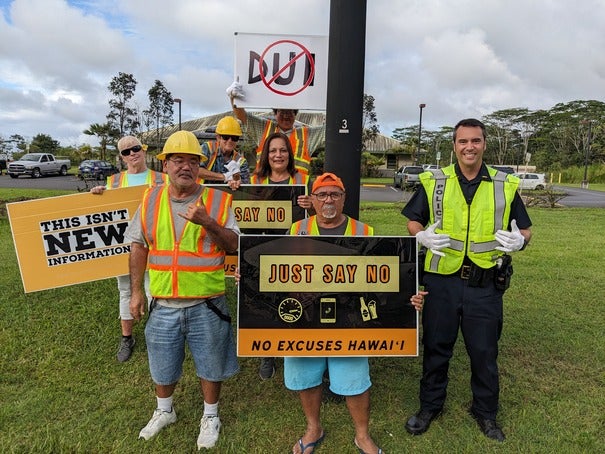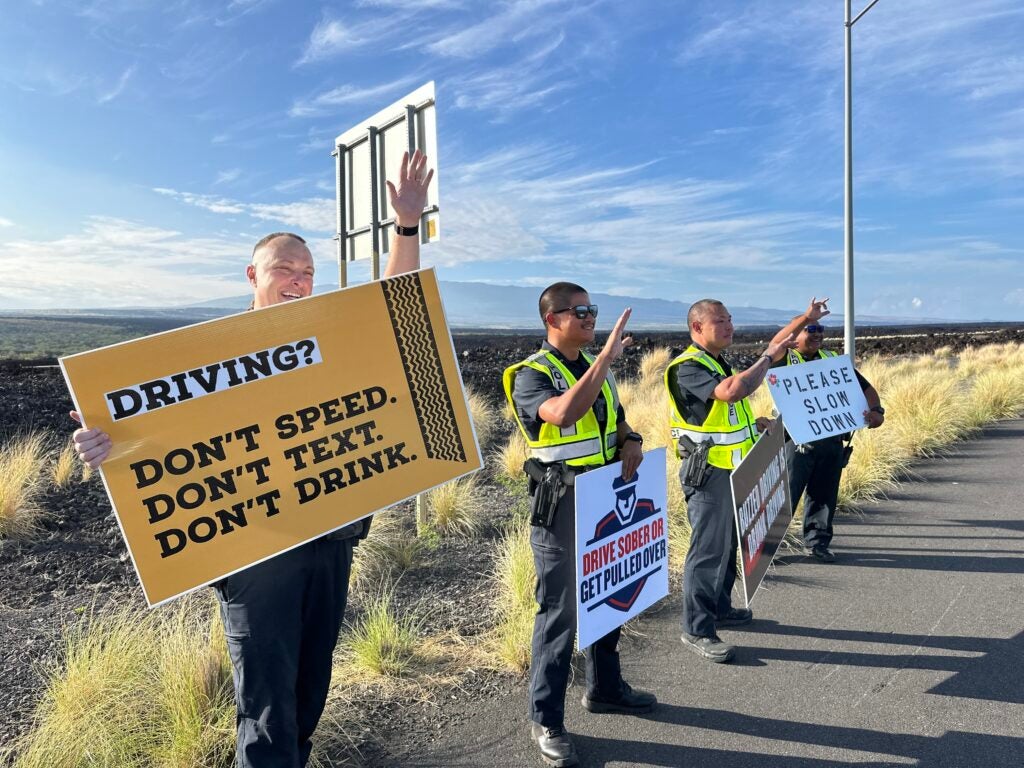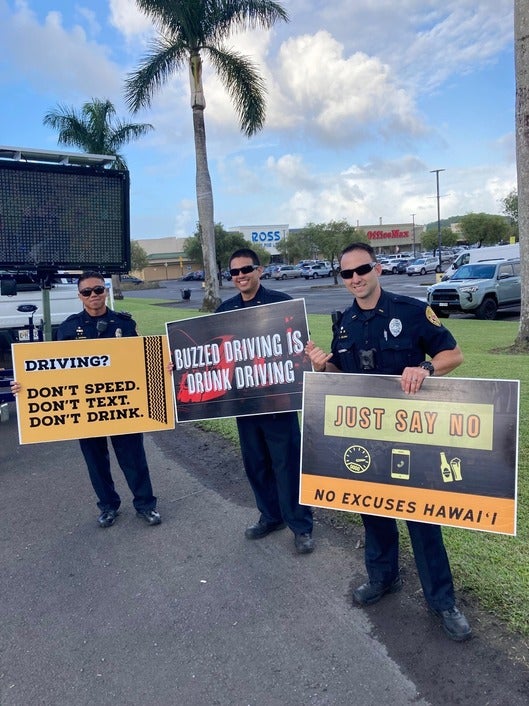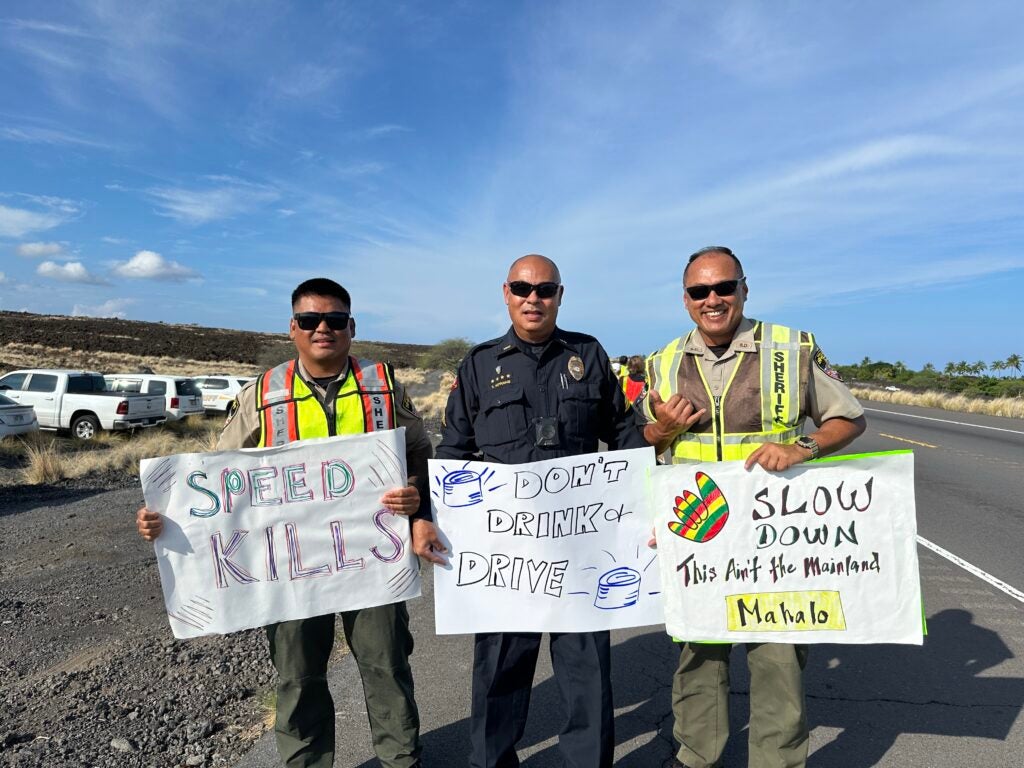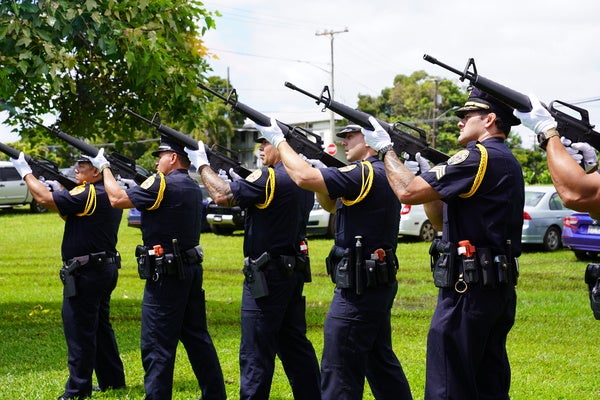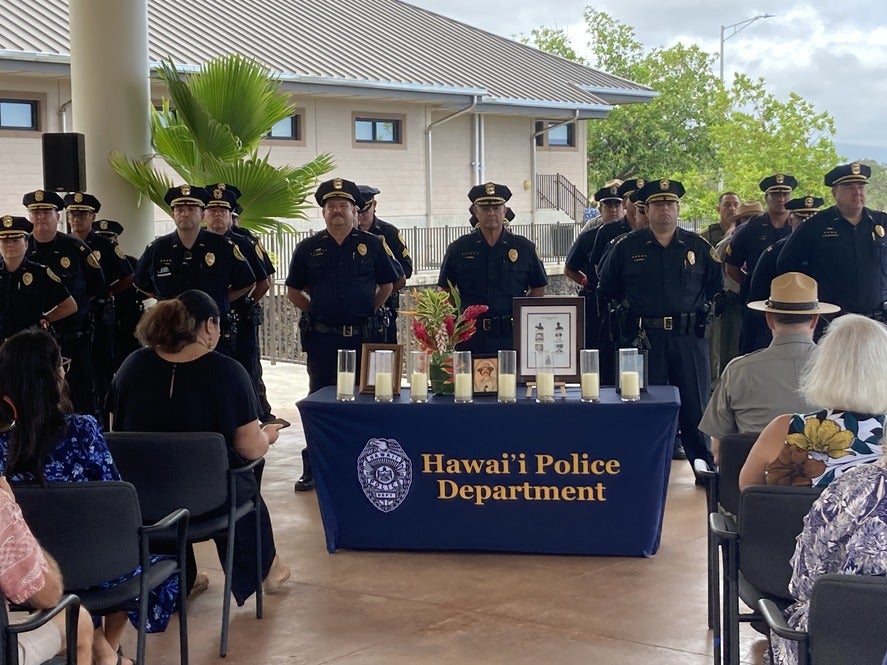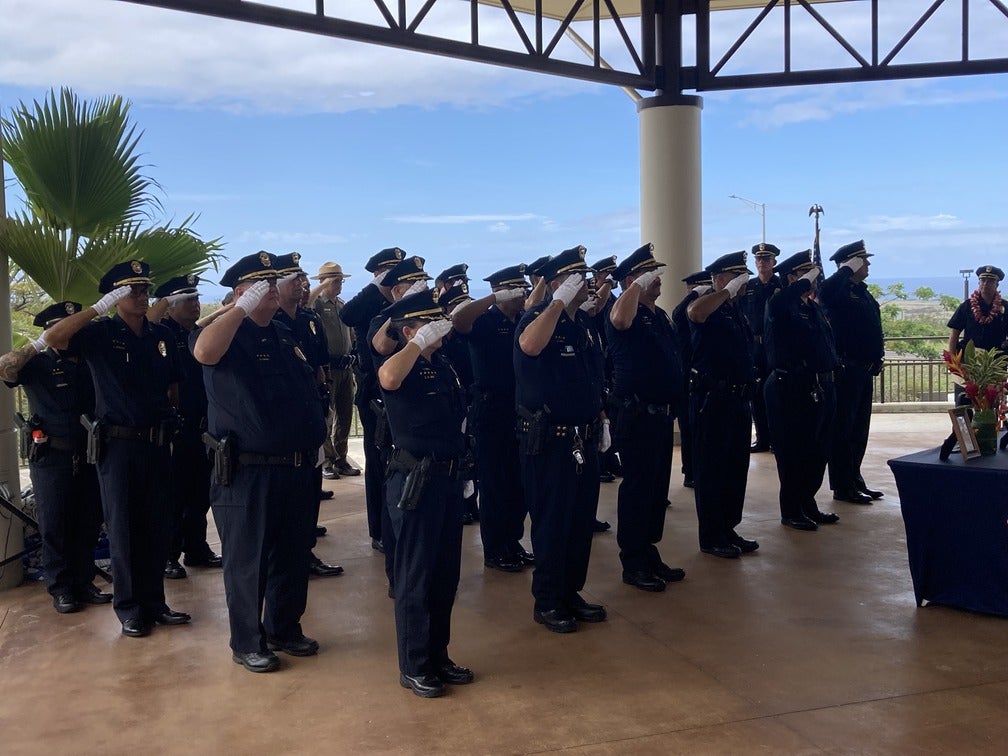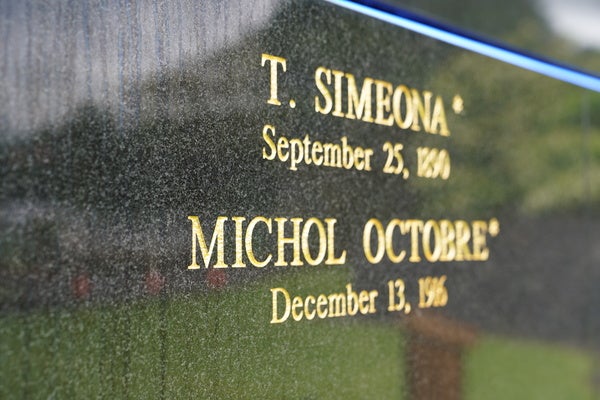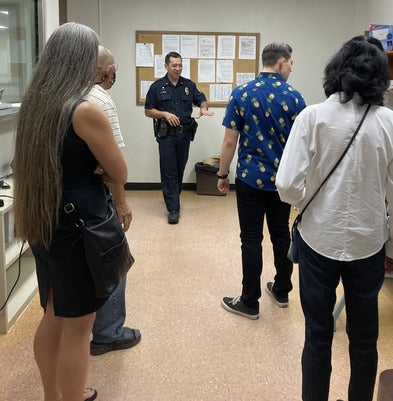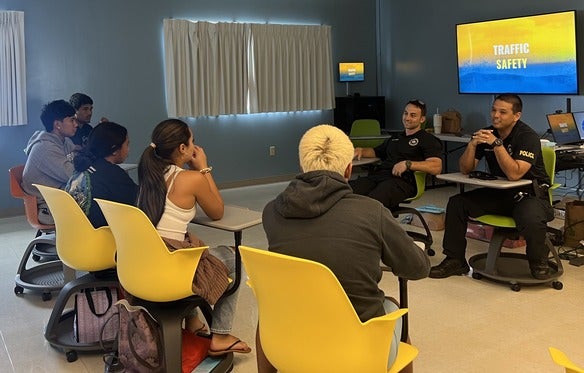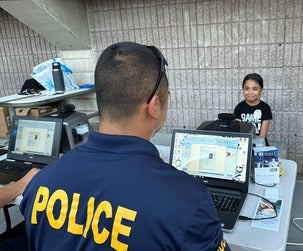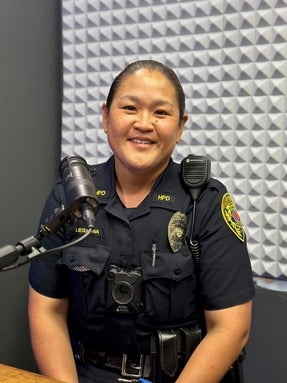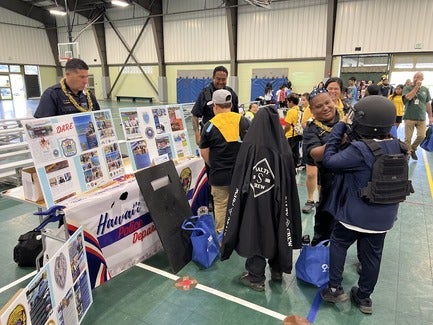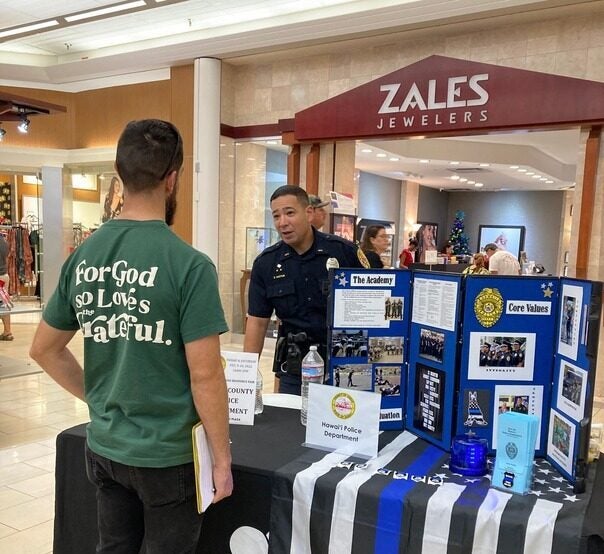Community Programs
Hawaiʻi Police Department Community Policing Officers are problem solvers at heart. Assigned to every district on island, they are responsible for developing partnerships within the community to create a safe and secure environment. This can be accomplished through community mobilization, crime prevention efforts, and problem solving with programs such as Neighborhood Watch, Citizen Patrol, etc. Through mobilization, Community Policing Officers can facilitate a community’s efforts to create positive changes within their neighborhood.
Using Technology to Improve Community Engagement
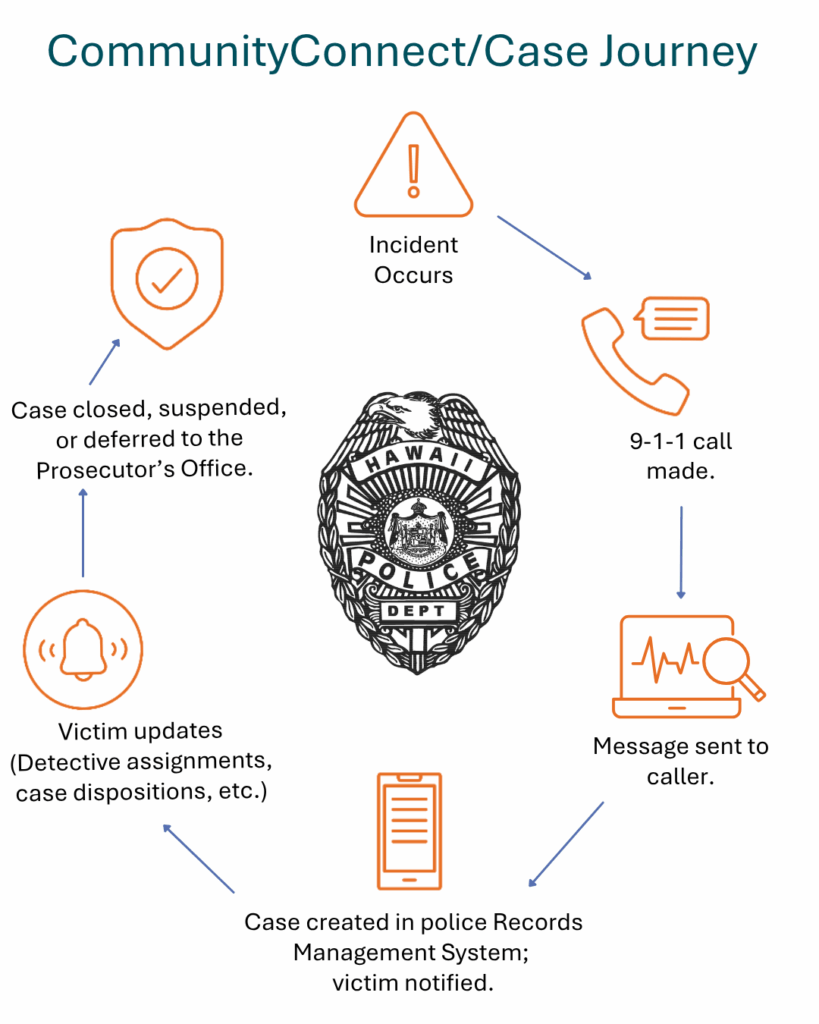
Hawai‘i Police Department is enhancing community engagement and promoting transparency with Versaterm CommunityConnect. This fully automated system is designed to provide community members with pertinent information and updates about their case or incident via text message or email.
Key features and benefits of Versaterm CommunityConnect include:
• Automated Call Acknowledgement: When someone calls for specified types of police services on a cell phone, they may receive a text message acknowledging their call. These messages can be viewed in a phone web browser in English, Spanish, and Tagalog, where additional resources may also be included.

• Real-time Updates:
◦ Delayed Arrival Notifications: If an officer is delayed, an automated message will inform you about the delay.
◦ Case Status Notifications: The program provides updates on the status of your case, including if an arrest is made or whether the case is closed. This can lead to up to a 40 percent reduction in callbacks to dispatch.
◦ Victim Notifications: Victims will receive ongoing messages about their case, which may include relevant initial report details, detective assignments, case status updates, and arrest notifications. General resources, and additional report specific information may be provided, as well as relevant victim service resource information. This significantly improves victim notification and access to resources, providing higher quality self-service and reducing calls to investigations.
• Multi-language Support: Automated messages can be sent in Spanish and Tagalog if the recipient does not speak English.
• Victim Portal: This dedicated portal allows victims or their designees to view case status updates and enroll in arrest notification messaging. It can be accessed via QR code or online at engage.hawaiipolice.gov.
Versaterm CommunityConnect helps ensure Hawai‘i County receives the service it deserves by fostering clear communication and accountability.
Serving Our Community
The Hawaiʻi Police Department’s goal of combating crime and providing efficient service depends to a large degree on the assistance and understanding it receives from the general public. To promote public understanding, the department maintains several programs to help the community and increase its awareness of police operations.
Community-Traffic Awareness Partnership
The Community-Traffic Awareness Partnership (C-TAP) program is a partnership with the police and communities to educate and encourage safe driving within designated neighborhoods. Community members hold signs warning motorists of the dangers of speeding in their neighborhood. A “Speed Board” display is used by the police to show motorists how fast they are going. Police will follow up weeks later with actual enforcement to ensure that motorists comply with the speed limit.
Police Week
In observance of fallen officers who made the ultimate sacrifice by giving their lives in the line of duty, Police Week is celebrated in conjunction with the observance of National Police Week during the month of May. It was first instituted through a U.S. Senate joint resolution in the 87th congress and signed by the late President John F. Kennedy on June 21, 1961. During the week, there are “Open Houses” at all police stations on the Hawaiʻi Island with special tours of the police station.
2023 Police Week Ceremony in Hilo
Past Police Week Media Releases
Are You an HPD Staff or Family Member?
Services for Kids
Career Fairs
We always welcome opportunities to talk story with people considering a career in law enforcement. If you’d like us to come to your event, please call the Community Relations Section at (808) 961-2264.
Unsolved Homicides
Hawaiʻi Police Department believes every victim deserves justice, and that the deceased victim’s family, friends, and community deserve closure.
Please take a moment to review the Unsolved Homicides summaries and if you have any information pertaining to any of these cases, please submit a tip, email us or call our Unsolved Homicides Division at (808) 961-2380 or Crime Stoppers at (808) 961-8300. Thank you for your help!


